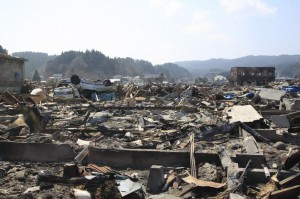 There is no earthquake season. Earthquakes can happen any time of the year, and in any weather condition. There are areas of the country that are more prone to earthquakes than others, but there is some potential for a quake in all 50 states. In July, 2014 the United States Geological Survey (USGS) released updated U.S. National Seismic Hazard Maps, revealing that in many areas of the country there is a higher potential for bigger earthquakes than was previously believed.
There is no earthquake season. Earthquakes can happen any time of the year, and in any weather condition. There are areas of the country that are more prone to earthquakes than others, but there is some potential for a quake in all 50 states. In July, 2014 the United States Geological Survey (USGS) released updated U.S. National Seismic Hazard Maps, revealing that in many areas of the country there is a higher potential for bigger earthquakes than was previously believed.
Preparing for an Earthquake
If you are in an area with a high potential for earthquakes, there are some things you can do to minimize your risk of injury and to protect your ability to recover the value of lost belongings.
- Put together an emergency kit that includes bottled water, non-perishable foods, first aid kit, flashlights, and other necessities. Include copies of important documents such as your birth certificate and passport.
- Keep cell phones and other devices charged.
- Take pictures of your belongings for use in an insurance claim.
- Secure large items, such as refrigerators and bookcases, to keep them from falling over.
- Store heavy, sharp, and glass items in lower shelves.
- Install latches on cabinets to keep them from flying open.
During an Earthquake
If you are in an earthquake, there are several things you can do to minimize your risk of injury:
- When inside, get away from heavy objects that might fall on you, and away from windows.
- Seek the most stable or protected area, such as a doorway or under a desk.
- Do not get on an elevator.
- If you are using the oven or stove, turn it off.
- If you are outside, get way from buildings, bridges, power poles and other objects that may fall on you.
- If you are in your car, stop as quickly as you can, but do not park under a bridge or overpass.















